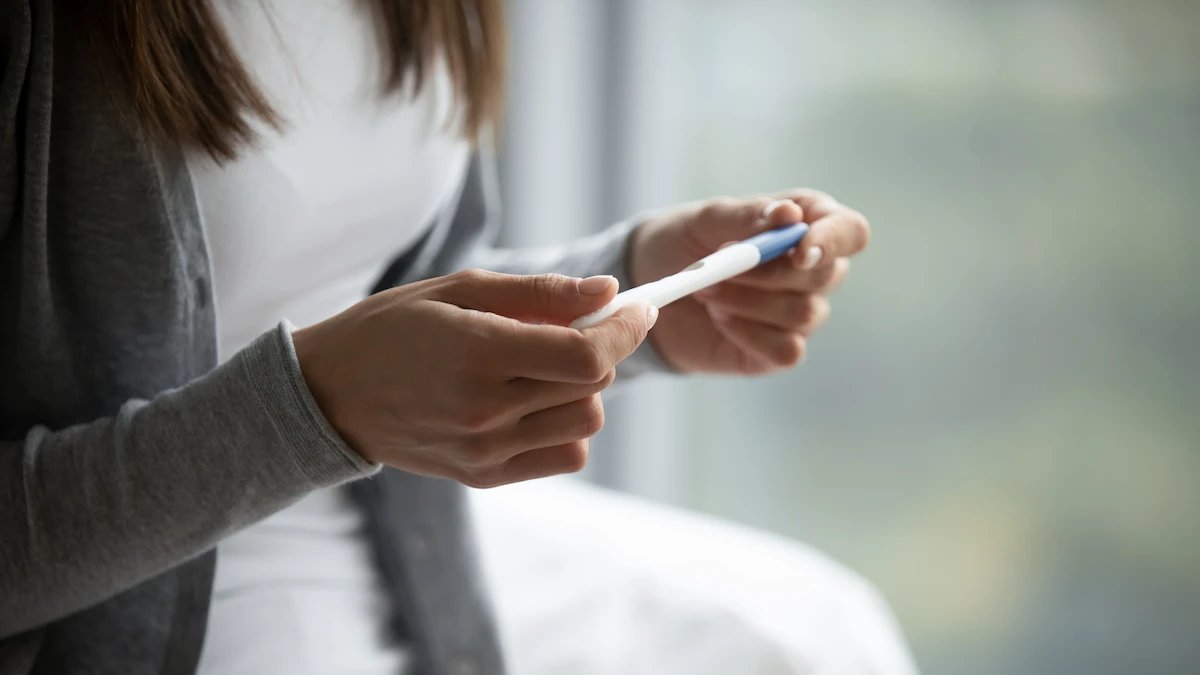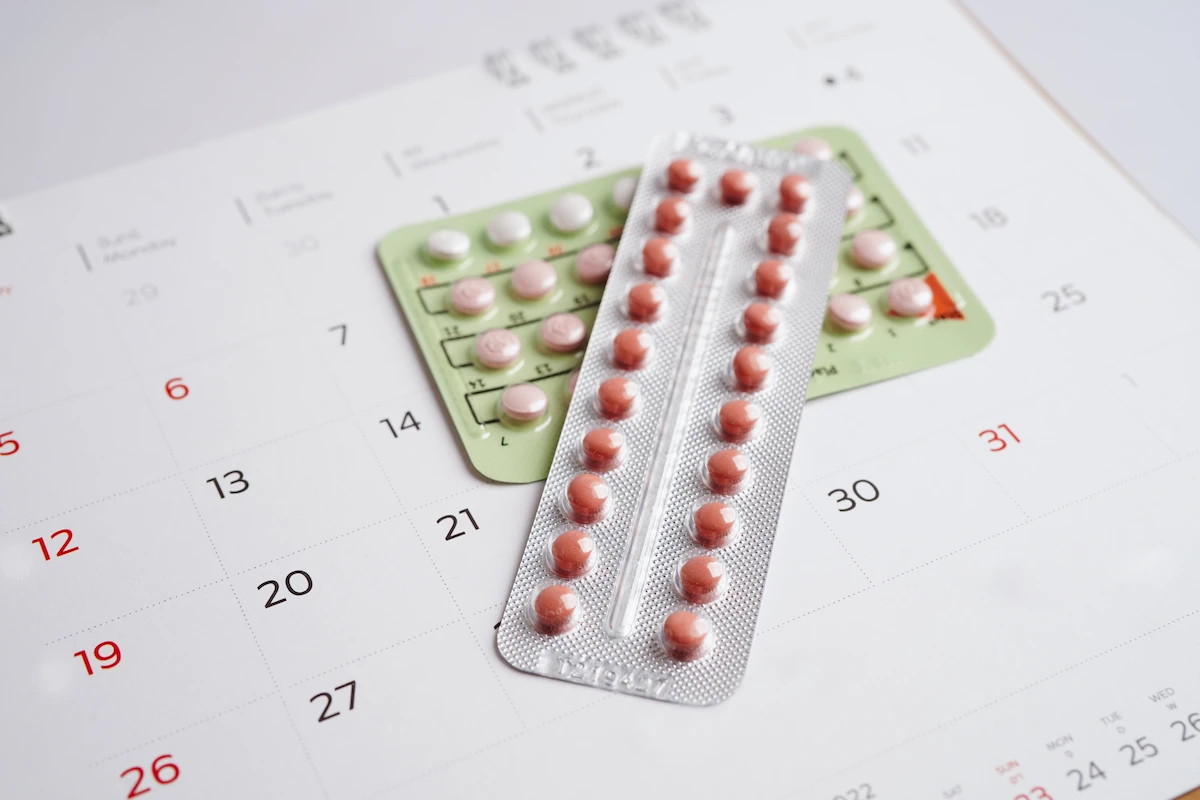Do You Ovulate on Birth Control? How it Works

Birth control pills are a popular and effective method of contraception, but many women have questions about how they work and their impact on the body. If you’re a woman using birth control, you might be wondering, “Do you ovulate on birth control?” or “How does birth control affect my period?”
This comprehensive guide will delve into the science behind birth control pills, explore their effects on ovulation and menstruation, and address common concerns. We’ll also discuss the importance of consulting a primary care doctor in Miami for personalized guidance and care.
Understanding Birth Control Pills
Most birth control pills are combination pills, containing synthetic versions of the hormones estrogen and progesterone. These hormones work together to prevent pregnancy by:
- Suppressing Ovulation: The primary mechanism of action is to prevent the release of an egg from the ovary (ovulation).
- Thickening Cervical Mucus: The hormones also thicken the cervical mucus, making it difficult for sperm to reach the egg.
- Thinning the Uterine Lining: This makes it less likely for a fertilized egg to implant.
Do You Ovulate on Birth Control?
In most cases, no, you do not ovulate on birth control pills. The hormones in the pill suppress the release of an egg from the ovary, effectively preventing pregnancy. However, it’s important to note that no birth control method is 100% effective, and breakthrough ovulation can occasionally occur.
How Late Can a Period Be on Birth Control?
Birth control pills can regulate your menstrual cycle, making your periods lighter, shorter, and more predictable. However, some women might experience irregular bleeding or missed periods, especially during the first few months of use.
If you’re concerned about a late period while on birth control, consult your doctor in Miami. They can help determine if it’s a normal side effect or if there’s an underlying issue.
If I Start Birth Control on My Period, Will It Stop?
Starting birth control pills on your period can help reduce breakthrough bleeding and regulate your cycle more quickly. However, it won’t necessarily stop your current period immediately.

How Long Does Birth Control Stay in Your System?
The hormones in birth control pills are typically metabolized and eliminated from your body within 24-48 hours after you stop taking them. However, it can take a few weeks for your menstrual cycle to return to its normal pattern.
Primary Care Doctor and Birth Control in Miami
If you have any questions or concerns about birth control, your primary care doctor in Miami can provide personalized guidance. They can:
- Discuss different birth control options and help you choose the right one for your needs.
- Prescribe birth control pills and monitor for any side effects.
- Address any concerns you might have about your menstrual cycle or hormonal health.
Key Takeaways:
- Birth control pills primarily work by suppressing ovulation.
- While breakthrough ovulation is rare, it can occur.
- Birth control pills can regulate your menstrual cycle, but some women might experience irregular bleeding or missed periods.
- If you have any concerns about birth control or your reproductive health, consult a primary care doctor in Miami.
Remember, this article is intended for informational purposes only and should not be considered a substitute for professional medical advice. Always consult your doctor for personalized guidance and treatment.
FAQs: Do You Ovulate on Birth Control?
- Can I get pregnant while on birth control pills? While birth control pills are highly effective in preventing pregnancy, they are not 100% foolproof. Breakthrough ovulation and pregnancy can occur, especially if you miss pills or take certain medications that interfere with the pill’s effectiveness.
- Why did my period change after starting birth control? Birth control pills often cause changes in your menstrual cycle, such as lighter bleeding, shorter periods, or more predictable cycles. This is due to the hormones in the pill regulating your menstrual cycle. However, some women might experience irregular bleeding or missed periods, especially in the first few months of use.
- I’m experiencing side effects from my birth control pills. What should I do? Common side effects of birth control pills can include nausea, breast tenderness, headaches, and mood changes. If you experience any bothersome side effects, talk to your doctor in Miami. They might recommend adjusting your dosage or switching to a different type of birth control.
- How long does it take for birth control to become effective? If you start taking birth control pills on the first day of your period, they are typically effective immediately. However, if you start them at any other time during your cycle, it’s recommended to use a backup method of contraception for the first seven days.
- I’m planning to get pregnant soon. How long should I wait after stopping birth control? It’s generally recommended to wait at least one to three months after stopping birth control pills before trying to conceive. This allows your body time to adjust and your menstrual cycle to return to its natural rhythm. However, it’s best to discuss your family planning goals with your primary care doctor in Miami for personalized guidance.
Contact Us
Hiriart & Lopez MD, LLC
9950 SW 107th Ave STE 101,
Miami, FL 33176
305-274-8779
Phone: (305) 274-8779
Fax: (305) 274-0646
OPENING HOURS
Monday 7:30 AM–4:30 PM
Tuesday 7:30 AM–4:30 PM
Wednesday 7:30 AM–4:30 PM
Thursday 7:30 AM–4:30 PM
Friday 7:30–11 AM
Saturday Closed
Sunday Closed
OFFICE LOCATION
Do You Ovulate on Birth Control? How it Works

Birth control pills are a popular and effective method of contraception, but many women have questions about how they work and their impact on the body. If you’re a woman using birth control, you might be wondering, “Do you ovulate on birth control?” or “How does birth control affect my period?”
This comprehensive guide will delve into the science behind birth control pills, explore their effects on ovulation and menstruation, and address common concerns. We’ll also discuss the importance of consulting a primary care doctor in Miami for personalized guidance and care.
Understanding Birth Control Pills
Most birth control pills are combination pills, containing synthetic versions of the hormones estrogen and progesterone. These hormones work together to prevent pregnancy by:
- Suppressing Ovulation: The primary mechanism of action is to prevent the release of an egg from the ovary (ovulation).
- Thickening Cervical Mucus: The hormones also thicken the cervical mucus, making it difficult for sperm to reach the egg.
- Thinning the Uterine Lining: This makes it less likely for a fertilized egg to implant.
Do You Ovulate on Birth Control?
In most cases, no, you do not ovulate on birth control pills. The hormones in the pill suppress the release of an egg from the ovary, effectively preventing pregnancy. However, it’s important to note that no birth control method is 100% effective, and breakthrough ovulation can occasionally occur.
How Late Can a Period Be on Birth Control?
Birth control pills can regulate your menstrual cycle, making your periods lighter, shorter, and more predictable. However, some women might experience irregular bleeding or missed periods, especially during the first few months of use.
If you’re concerned about a late period while on birth control, consult your doctor in Miami. They can help determine if it’s a normal side effect or if there’s an underlying issue.
If I Start Birth Control on My Period, Will It Stop?
Starting birth control pills on your period can help reduce breakthrough bleeding and regulate your cycle more quickly. However, it won’t necessarily stop your current period immediately.

How Long Does Birth Control Stay in Your System?
The hormones in birth control pills are typically metabolized and eliminated from your body within 24-48 hours after you stop taking them. However, it can take a few weeks for your menstrual cycle to return to its normal pattern.
Primary Care Doctor and Birth Control in Miami
If you have any questions or concerns about birth control, your primary care doctor in Miami can provide personalized guidance. They can:
- Discuss different birth control options and help you choose the right one for your needs.
- Prescribe birth control pills and monitor for any side effects.
- Address any concerns you might have about your menstrual cycle or hormonal health.
Key Takeaways:
- Birth control pills primarily work by suppressing ovulation.
- While breakthrough ovulation is rare, it can occur.
- Birth control pills can regulate your menstrual cycle, but some women might experience irregular bleeding or missed periods.
- If you have any concerns about birth control or your reproductive health, consult a primary care doctor in Miami.
Remember, this article is intended for informational purposes only and should not be considered a substitute for professional medical advice. Always consult your doctor for personalized guidance and treatment.
FAQs: Do You Ovulate on Birth Control?
- Can I get pregnant while on birth control pills? While birth control pills are highly effective in preventing pregnancy, they are not 100% foolproof. Breakthrough ovulation and pregnancy can occur, especially if you miss pills or take certain medications that interfere with the pill’s effectiveness.
- Why did my period change after starting birth control? Birth control pills often cause changes in your menstrual cycle, such as lighter bleeding, shorter periods, or more predictable cycles. This is due to the hormones in the pill regulating your menstrual cycle. However, some women might experience irregular bleeding or missed periods, especially in the first few months of use.
- I’m experiencing side effects from my birth control pills. What should I do? Common side effects of birth control pills can include nausea, breast tenderness, headaches, and mood changes. If you experience any bothersome side effects, talk to your doctor in Miami. They might recommend adjusting your dosage or switching to a different type of birth control.
- How long does it take for birth control to become effective? If you start taking birth control pills on the first day of your period, they are typically effective immediately. However, if you start them at any other time during your cycle, it’s recommended to use a backup method of contraception for the first seven days.
- I’m planning to get pregnant soon. How long should I wait after stopping birth control? It’s generally recommended to wait at least one to three months after stopping birth control pills before trying to conceive. This allows your body time to adjust and your menstrual cycle to return to its natural rhythm. However, it’s best to discuss your family planning goals with your primary care doctor in Miami for personalized guidance.
Contact Us
Hiriart & Lopez MD, LLC
9950 SW 107th Ave STE 101,
Miami, FL 33176
305-274-8779
Phone: (305) 274-8779
Fax: (305) 274-0646
OPENING HOURS
Monday 7:30 AM–4:30 PM
Tuesday 7:30 AM–4:30 PM
Wednesday 7:30 AM–4:30 PM
Thursday 7:30 AM–4:30 PM
Friday 7:30–11 AM
Saturday Closed
Sunday Closed

